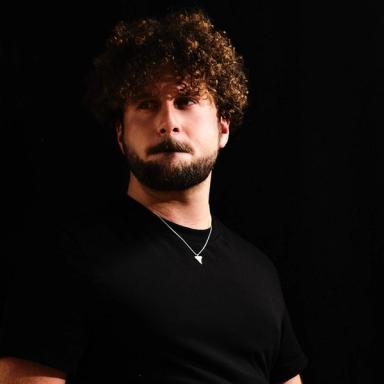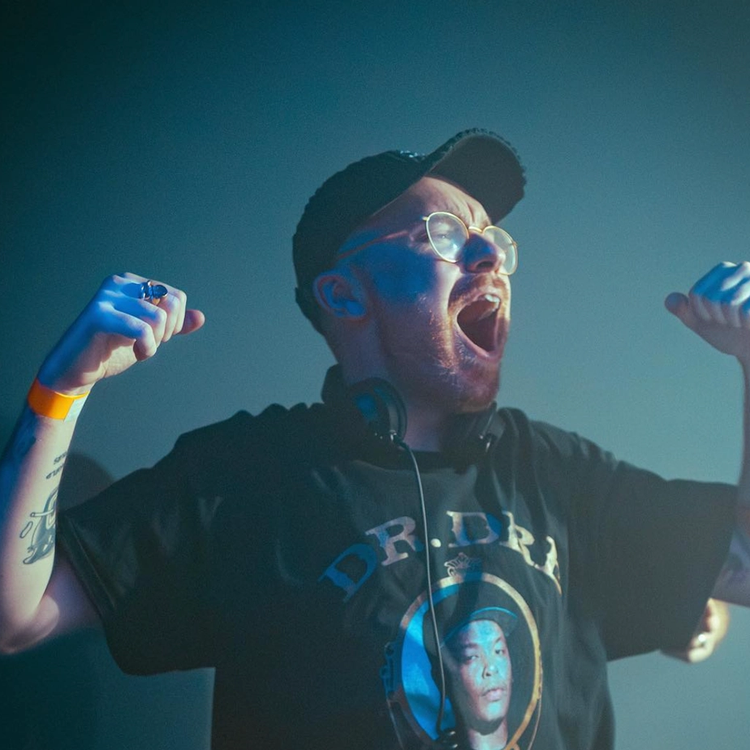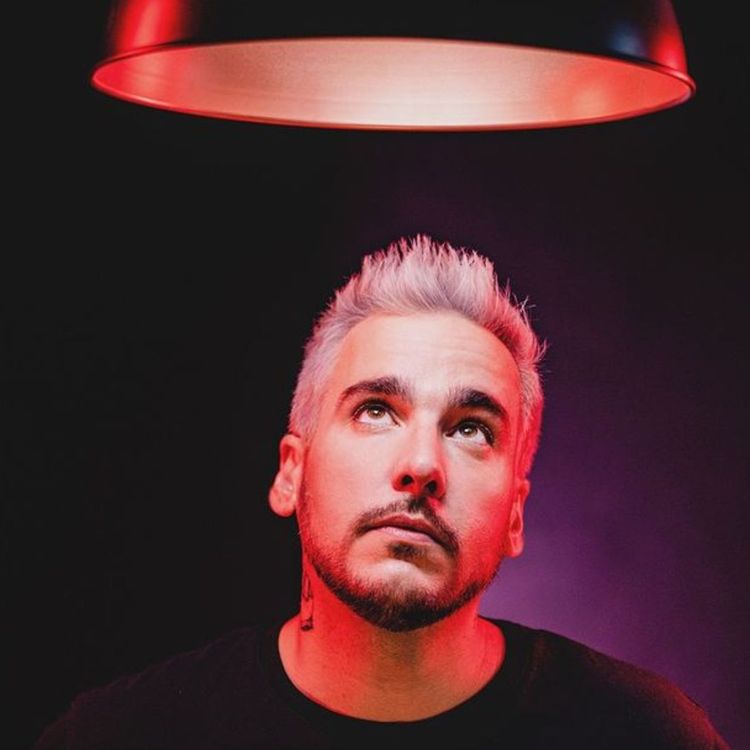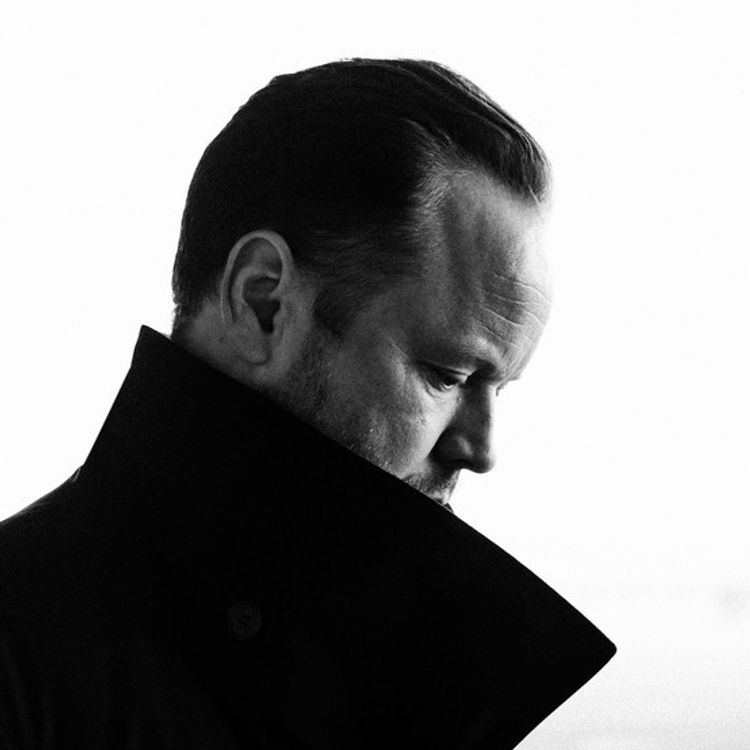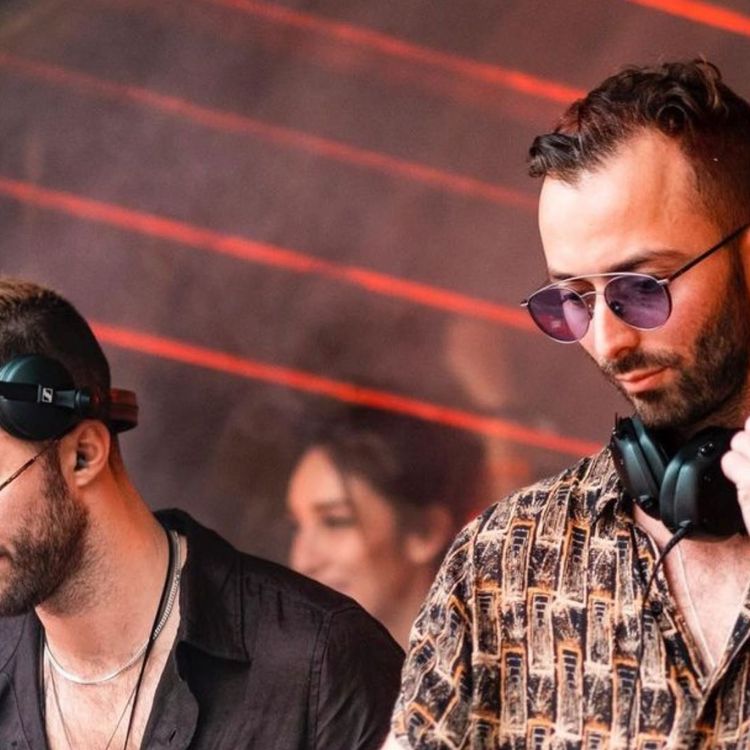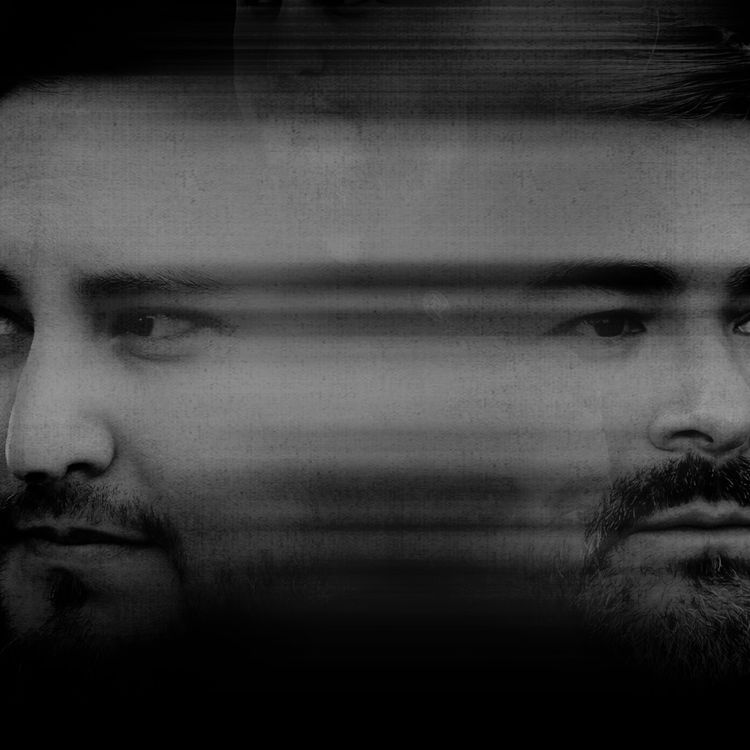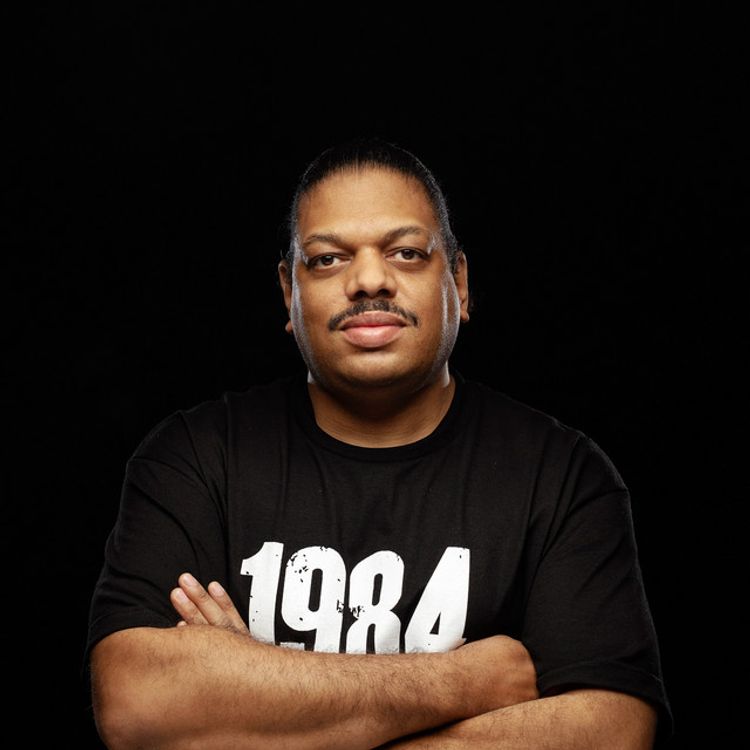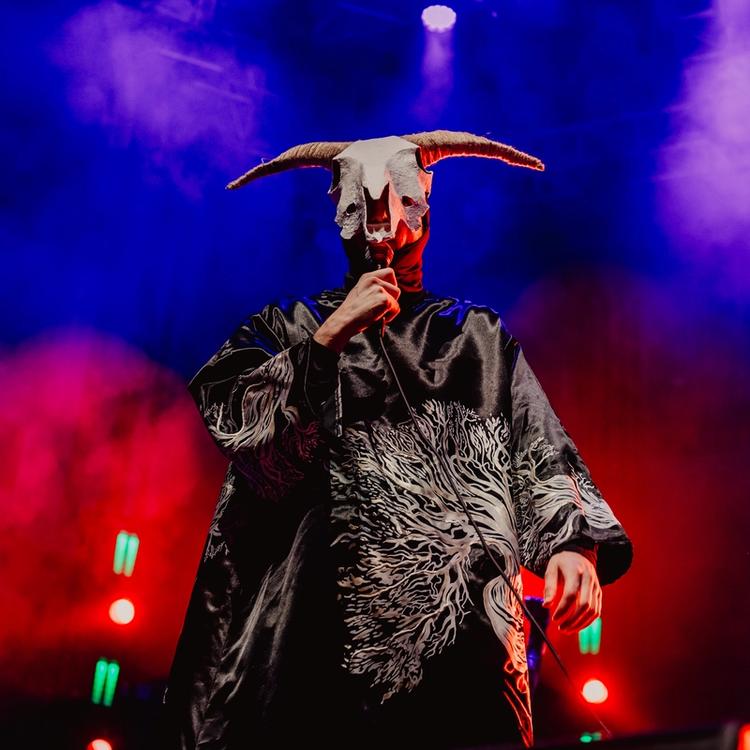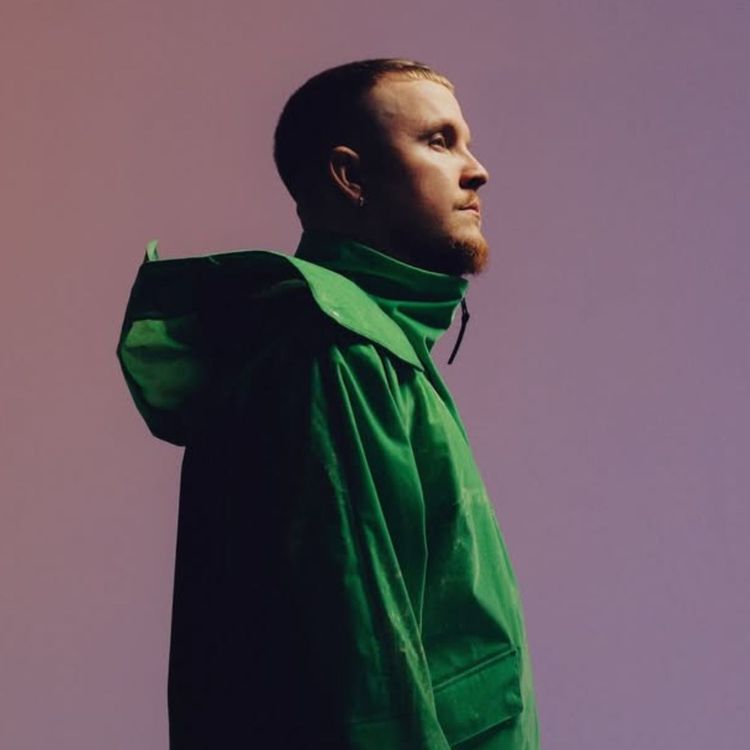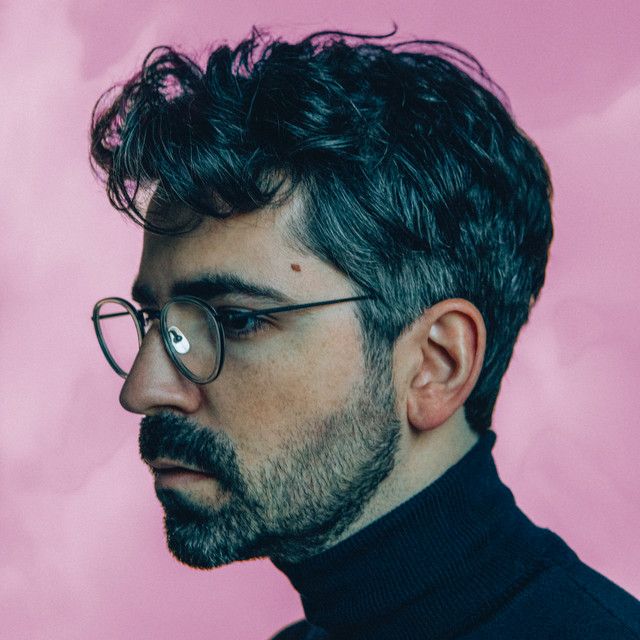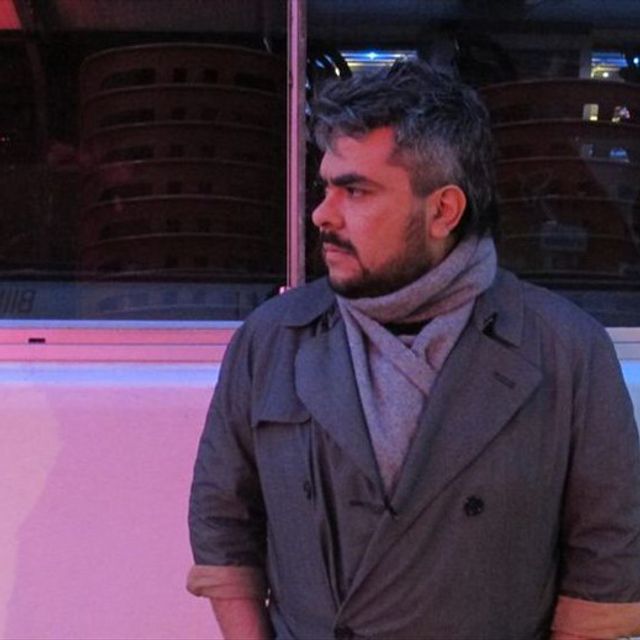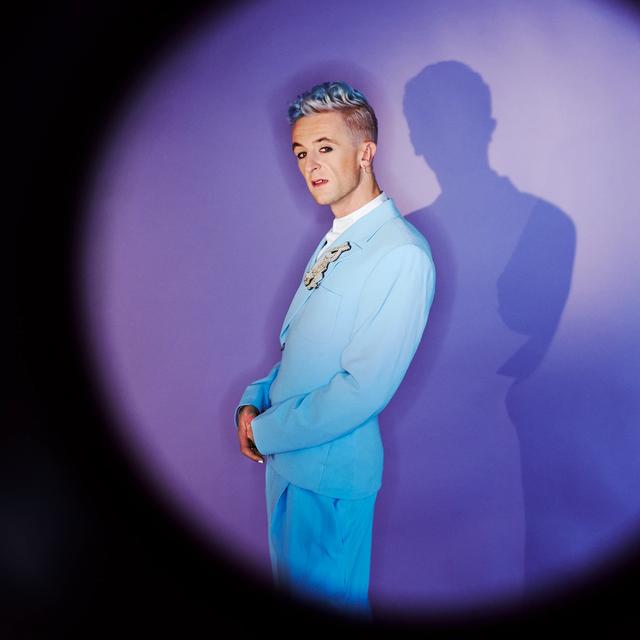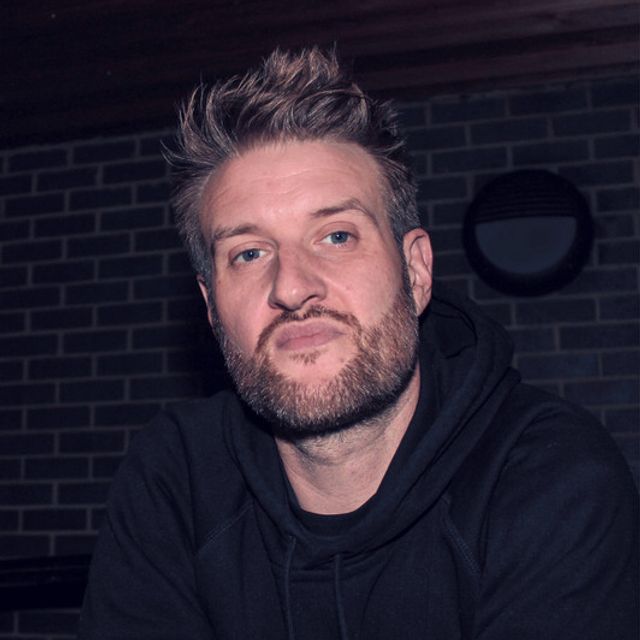Artist Spotlight
The concepts of songwriting and producing often intertwine in the world of electronic music. Artists who champion the genre are generally referred to as "producers," because they build a track from the ground up, but in this process, they also engage in songwriting.
Elderbrook, on the other hand, is a songwriter who engages in production. This core difference allows him to alternate between indie and electronic soundscapes with such precision and grace.
Elderbrook—real name Alexander Kotz— always takes a songwriter's approach. Whether he is writing lyrics for vocal features like the now-infamous charting record "Cola," with Camelphat, or building a song from the ground up as he did on his early hit "Rewinding." It always starts with the acoustic guitar.

"As soon as I learned three chords I just started writing. I always wanted to write," Kotz tells Gray Area over Zoom from his home in the UK.
To further understand how songwriting is essential to Kotz's approach, it's important to understand the differences between songwriting and producing.
Songwriting refers to creating the core elements of a song. Melody, chord progressions, lyrics. The fundamental aspects that allow a song to be performed through any number of different applications.
Like when Kotz covered "You're The One That I Want" from the musical Grease during one of his Hotel Room Sessions. He took the core elements and repurposed them to fit his style.
Producing involves the layers that come on top of those core elements. The polish. The finishing touches. Once the foundation is in place, production implements sound design, effects, mixing, etc. That's what makes the song inimitable by another artist.
Kotz was happy to write songs with some of the most basic core elements imaginable in the beginning days of his artistry. From a young age, he wanted to be in bands, so he taught himself acoustic guitar.
To this day, the acoustic guitar can serve as a foundation of his writing process even though his sound has long since shifted from the acoustic, Mumford & Sons, aesthetic he initially wanted to write.
"There's always a guitar just lying around my house and whenever I walk past it I pick it up and mess around with the same three chords I always used to play as well," Kotz says.
The shift towards the more electronic sound came after Kotz broke away from the idea of being in a band and wanted to be a solo artist. Like with the guitar, he is self-taught on his preferred DAW, Logic Pro. However, unlike the guitar, Logic Pro, synthesizers, and production, in general, have so much less structure. The entire piece of music can change with the twist of a knob. It's an endless universe of exploration, and Kotz dove in headfirst.
At the time of this shift, house music was all the rage, so being a newly minted solo artist, he wanted to try his hand at it.

"I went in and what I was trying to accomplish I got absolutely nowhere near, but it still sounded OK, and that was the song called "Rewinding," which was the first thing I put online that went a little bit viral," Kotz says. "I really did not try to make that tune at all. I was definitely trying to make something else. I'd like to think the reason why my sound was original when I first started doing electronic music was simply because I had no idea what I was doing."
Kotz may not have known what he was doing with the synthesizers at first, but his talent for singing and writing lyrics served as the connective tissue holding his productions together. While his debut EP, Simmer Down, was still very much in the indie realm, the EP also included a heavily electronic remix of "How Many Times" from the German melodic techno outfit andhim.
In that one release, Kotz demonstrated his ability to transfer his voice seamlessly between genres, and this versatility stems from his upbringing as a songwriter.
"I rarely start with the vocals. It's mainly the track first, and then when it comes to doing the vocal I mumble things that I think, phonetically speaking, would fit in with what's already there," Kotz says. "Not that it doesn't mean anything, but then when it sounds like something I try and figure out what it sounds like. And once it sounds like one phrase, I see how we can delve deeper into that with the lyrics surrounding that."
Beyond writing his own work, this separation between writing vocals and writing the music has allowed Kotz to collaborate on several massively impressive vocal features as well. He's contributed his voice to music from Black Coffee, Rudimental, but by far, his most well-known vocal feature is "Cola," with Camelphat.
Currently, "Cola" has over 225 million plays on Spotify, reached number one on Billboard's Dance Club Songs chart in November 2017, and was nominated for Best Dance Recording at the 2018 Grammy Awards.
When Kotz set down to write the lyrics and vocal melody to "Cola," Camelphat already had the music finished, which fit right into his creative process, and so all he had to do was start mumbling to the music. When that process begins, an image begins to form in Kotz's mind…
"Whenever I'm thinking about lyrics for a song I always have an image in my head. Almost a music video, but not really a music video. More of a scene. A scene from a film. I can really picture it vividly, and once I have the scene, that really helps me understand what the song is about," Kotz says.
With this in mind, the widely eclectic sonics and lyrical messages within the music of Elderbrook become immensely intriguing. What sort of mumbling was he doing before he devised the shuddering hook in "Numb"? What image was in his head for "Inner Light," his swelling dance ballad with Bob Moses?
The listeners only get the end product of this fascinating process, but they can at least be comforted to know that Kotz is not going to stop writing songs any time soon. Currently, he's sitting on hundreds of different songs he wrote over the past two years of the pandemic, and he resolves to continue in the direction of electronic music.
